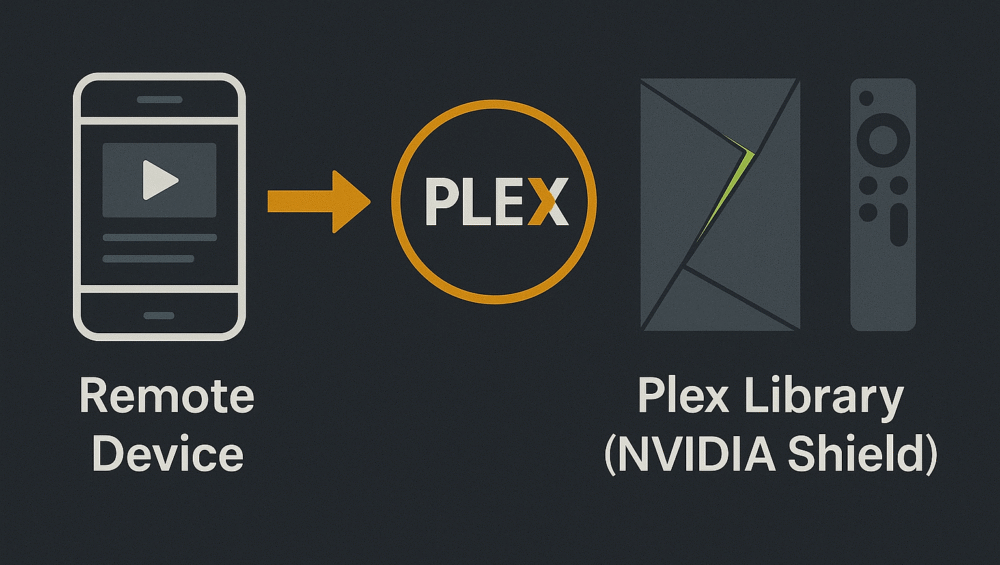In 2025, managing your personal streaming library is simpler than ever with Plex. And with the Plex server setup Shield TV Pro, you get one of the most powerful media servers available — no PC or NAS required. Whether you’re streaming 4K HDR movies or organizing your digital collection, this guide will help you every step of the way.
We’ll cover how to set up your Plex Media Server on the Shield TV Pro, optimize it for smooth playback, and explore advanced tools for transcoding, storage, and remote access. With a few easy tweaks, your Shield can become a complete home media hub for both local and remote streaming.
Why Use NVIDIA Shield TV as a Plex Server?
Both the NVIDIA Shield TV Pro and the base model stand out as rare streaming devices that can run Plex Media Server natively. This makes them ideal for anyone interested in a Plex server setup Shield TV Pro configuration.
Top Reasons to Choose Shield TV for Plex Server
Built-in Plex Media Server support — no extra hardware or PC needed.
Dual USB ports for connecting external hard drives or SSDs.
Gigabit Ethernet ensures consistent and stable media streaming.
Hardware-accelerated transcoding handles demanding 4K and high-bitrate content with ease.
Android TV OS flexibility allows access to streaming apps, AI upscaling, and smart home integration.

Before You Begin Your Plex Server Setup on Shield TV Pro
Before starting the Plex server setup Shield TV Pro, make sure you have everything ready for a smooth installation. Proper preparation ensures faster configuration and fewer playback issues later.
You’ll need the following:
NVIDIA Shield TV (the Pro version is highly recommended for better performance).
External USB hard drive or NAS, formatted in exFAT or NTFS for large media files.
A valid Plex account — either the free tier or a Plex Pass for advanced features.
A home network with strong Wi-Fi or Gigabit Ethernet for consistent streaming.
Plex apps installed on your client devices such as TVs, phones, or tablets for playback.
💡 Tip: The more reliable your storage and network, the smoother your Plex server setup Shield TV Pro experience will be.
Step-by-Step: Plex Server Setup Shield TV Pro
Once you’ve prepared your hardware and network, it’s time to begin your Plex server setup Shield TV Pro process. Follow these steps carefully to ensure smooth installation and configuration.
 Install Plex Media Server
Install Plex Media Server
Open the Google Play Store on your Shield TV.
Search for “Plex Media Server” (not the Plex client app).
Download and install the server app directly onto your Shield.
 Format and Mount Storage
Format and Mount Storage
Plug your external hard drive or SSD into one of the Shield’s USB ports.
Go to Settings → Device Preferences → Storage.
If prompted, format the drive for use.
Choose “Adoptable Storage” if you plan to store apps or “Removable Storage” for media files only.
 Launch Plex Media Server
Launch Plex Media Server
From the Shield TV home screen, open Plex Media Server (PMS).
Log in using your Plex account credentials.
When prompted, grant file system permissions to allow Plex to access your storage.


After installation, your Plex server setup Shield TV Pro needs properly organized libraries to manage your media effectively. These next steps connect your files and ensure Plex identifies everything correctly.
 Add Libraries
Add Libraries
On your computer or laptop, open a browser.
Type http://[Shield IP]:32400/web to access the Plex Web App.
Click “Add Library” and select the desired category: Movies, TV Shows, Music, or Photos.
Choose the corresponding folders from your external drive or NAS.
Confirm and save to link the library with your Shield.
 Scan and Organize Media
Scan and Organize Media
Plex will automatically scan your selected folders and fetch metadata like cover art, cast, and descriptions.
For accurate results, ensure all file names follow Plex’s naming conventions, such as:
MovieName (Year).mp4ShowName/Season 01/EpisodeName S01E01.mkv
Once complete, your media will appear neatly organized in the Plex interface.

Optimize Performance — Plex Server Setup Shield TV Pro
After adding your libraries, the next step in your Plex server setup Shield TV Pro is optimization. Proper tuning ensures smooth playback and efficient streaming across all devices.
 Enable Hardware Transcoding
Enable Hardware Transcoding
On your Plex Web App, go to Settings → Server → Transcoder.
Toggle “Use hardware acceleration when available.”
This allows the Shield’s Tegra X1+ processor to handle demanding 4K or HEVC files efficiently.
 Adjust Streaming Quality
Adjust Streaming Quality
In Settings → Remote Access or Player, set Default Streaming Quality to 8 Mbps or higher for 4K content.
Enable Direct Play whenever possible to stream files without transcoding, reducing CPU load and latency.

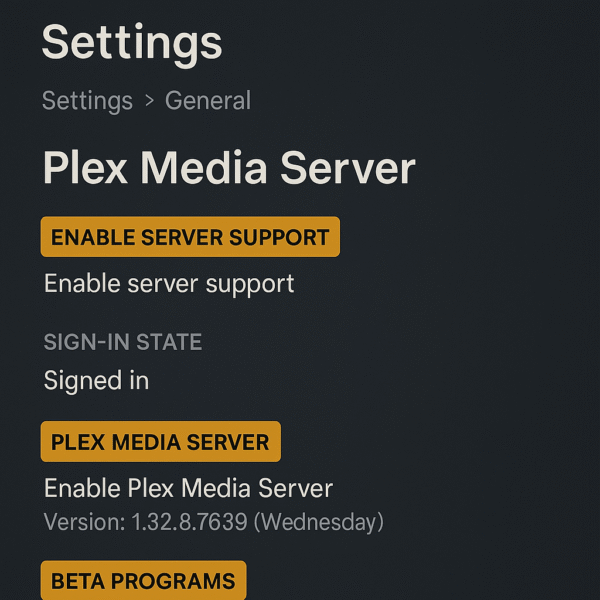
Once local playback is running smoothly, the next step in your Plex server setup is enabling remote access. This lets you enjoy your library from anywhere with an internet connection.
 Enable Remote Access
Enable Remote Access
Open the Plex Web App on your browser.
Go to Settings → Server → Remote Access.
Click “Enable Remote Access.”
If required, allow port forwarding (TCP 32400) on your router for secure external connections.
Wait for the confirmation message: “Fully accessible outside your network.”

Access Your Media Anywhere — Plex Server Setup Shield TV Pro
With remote access enabled, your server setup is now ready for streaming anywhere in the world. Whether you’re traveling or just away from home, your media stays with you.
 Stream Your Plex Content Anywhere
Stream Your Plex Content Anywhere
Log into your Plex account on any supported device — phone, tablet, laptop, or smart TV.
As long as your Shield TV remains powered and online, it functions as your active Plex server.
You can even share your media library with friends or family through Plex Home for collaborative streaming.

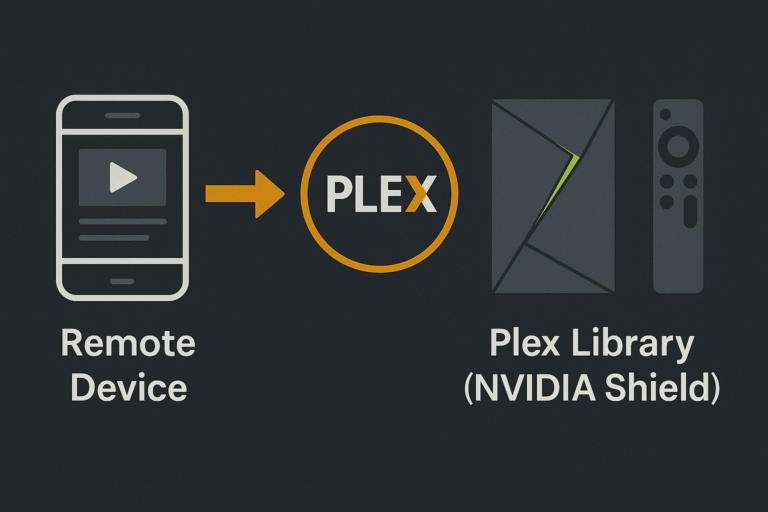
Automatic Library Updates
For smooth playback, keep your Plex libraries current. These quick tweaks automate scans and metadata refreshes.
Enable auto updates: In Settings → Library, turn on “Update my library automatically.” This refreshes changes without manual scans.
Schedule scans: Set periodic scans every 6 hours for reliable indexing, especially with downloads or NAS updates.
Tip: Also enable “Run a partial scan when changes are detected.” It speeds updates on large libraries during your Plex server setup Shield TV Pro.
Security & Advanced Settings
Security is just as important as performance. After finishing your Plex server setup Shield TV Pro, make sure your system stays protected.
Enable two-factor authentication: Turn on 2FA in your Plex account settings to protect against unauthorized access.
Use a static IP address: Assign a fixed IP to your Shield TV on your home network for reliable remote access.
Stream securely via HTTPS: In Plex advanced settings, enable secure connections (HTTPS) to encrypt data between your server and client devices.
💡 Tip: Regularly review your connected devices and sessions under Account → Security to maintain full control over your Plex server setup Shield TV Pro.
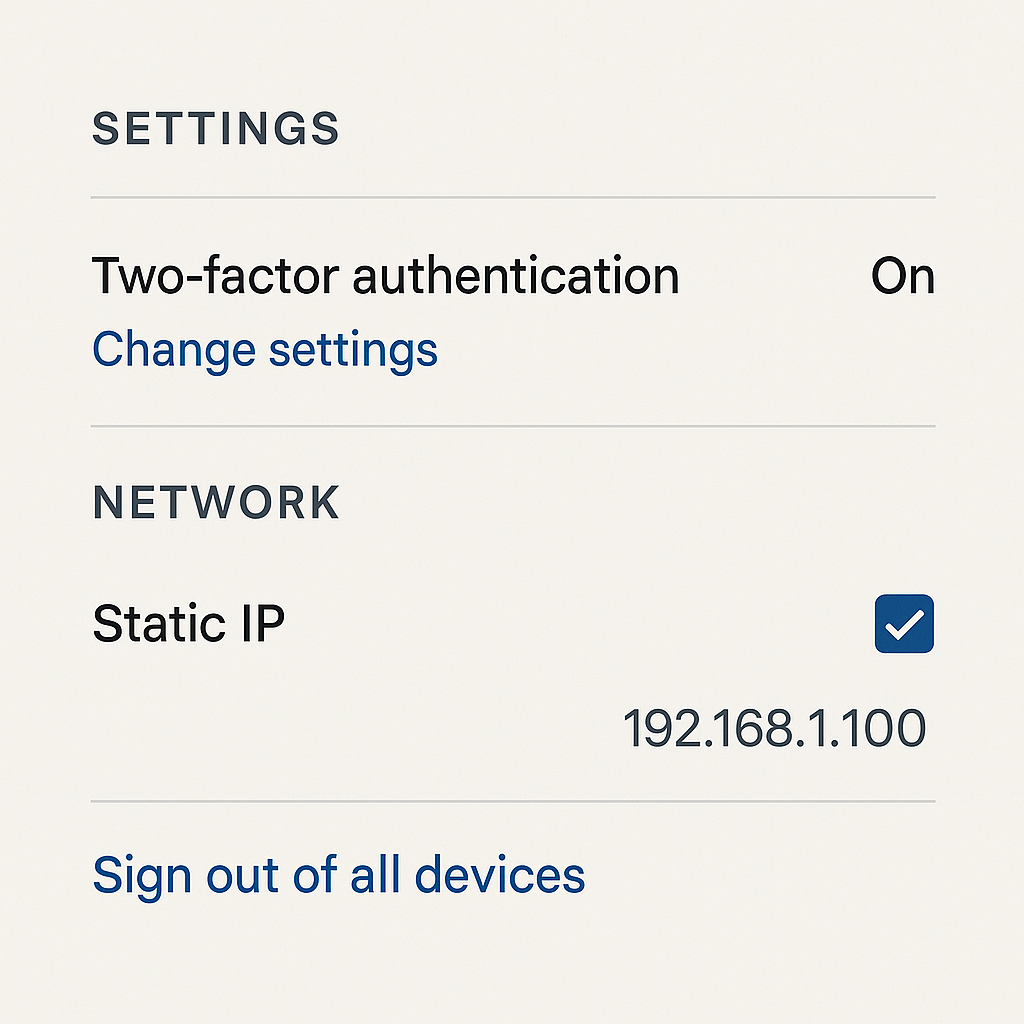
Troubleshooting Common Issues
Even a well-configured Plex server setup Shield TV Pro can encounter small issues. Here’s how to quickly resolve the most common ones.
⚠️ Buffering on 4K Files?
Use a wired Ethernet connection instead of Wi-Fi for faster data transfer.
Lower the transcoding bitrate or enable Direct Play to reduce CPU load.
🖼️ Metadata Not Showing?
Double-check your file naming conventions and ensure folders follow Plex’s recommended structure.
Run a manual library scan or enable auto-refresh in library settings.
💾 Storage Not Detected?
Confirm the drive is formatted as exFAT or NTFS.
Restart your Shield TV after mounting the external drive to refresh connections.
💡 Tip: Regular updates and rescans keep your Plex server setup Shield TV Pro running smoothly for all devices and media types.
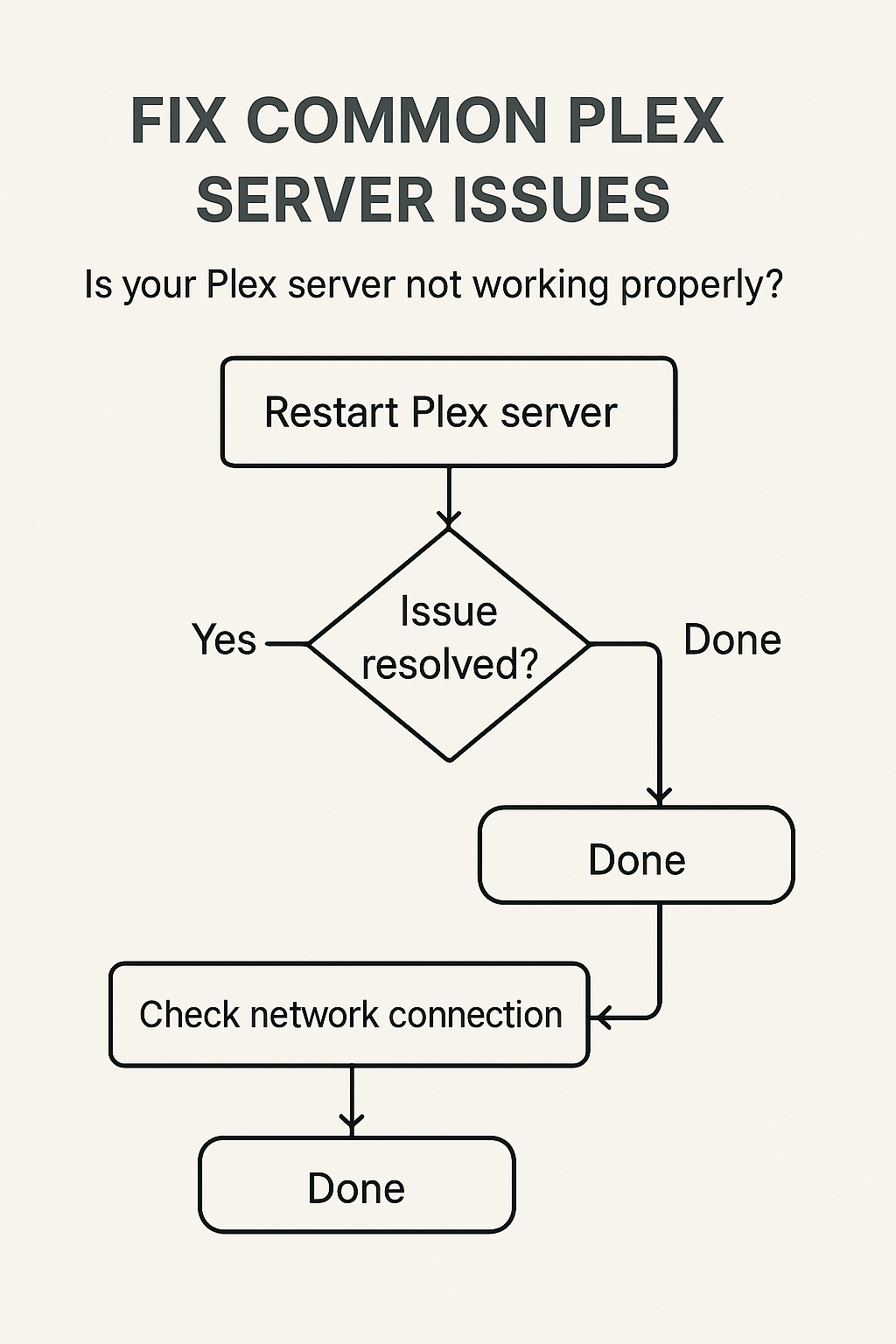
Why Plex + Shield TV is the Best Combo
The Plex server setup Shield TV Pro offers everything you need for a powerful, energy-efficient home media hub. With its advanced hardware and seamless software integration, it delivers the best balance of performance, simplicity, and smart functionality.
Key Advantages
True 4K HDR playback with Dolby Vision and Dolby Atmos passthrough for cinematic audio-visual quality.
Seamless streaming powered by hardware-accelerated transcoding, ensuring smooth playback for any media file.
Energy-efficient and silent operation, making it an ideal alternative to bulky NAS servers.
Smart automation support with Google Assistant and Alexa for effortless voice control.

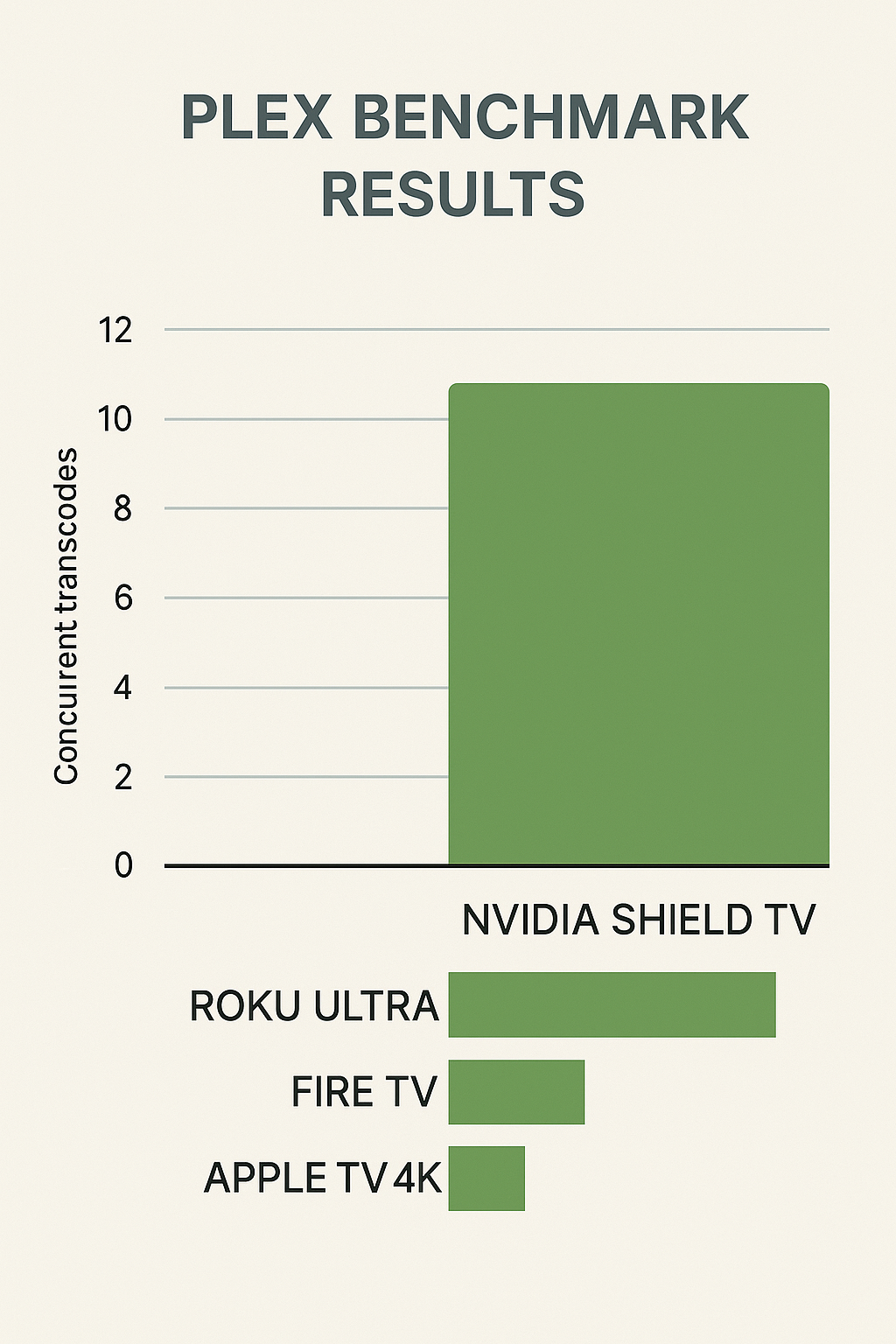
Final Thoughts
The NVIDIA Shield TV Pro stands out as the ultimate choice for a personal Plex Media Server in 2025. With this setup, users get buttery-smooth streaming, advanced file management, and effortless automation in one compact device.



